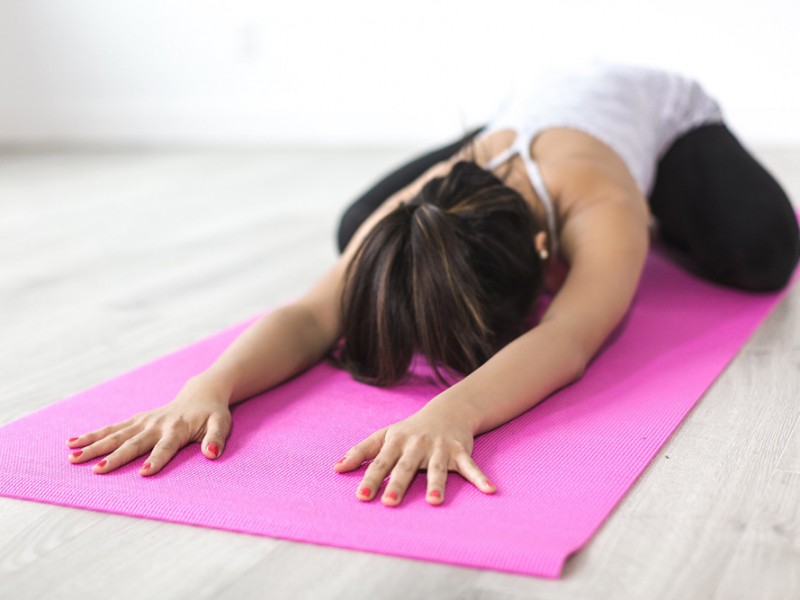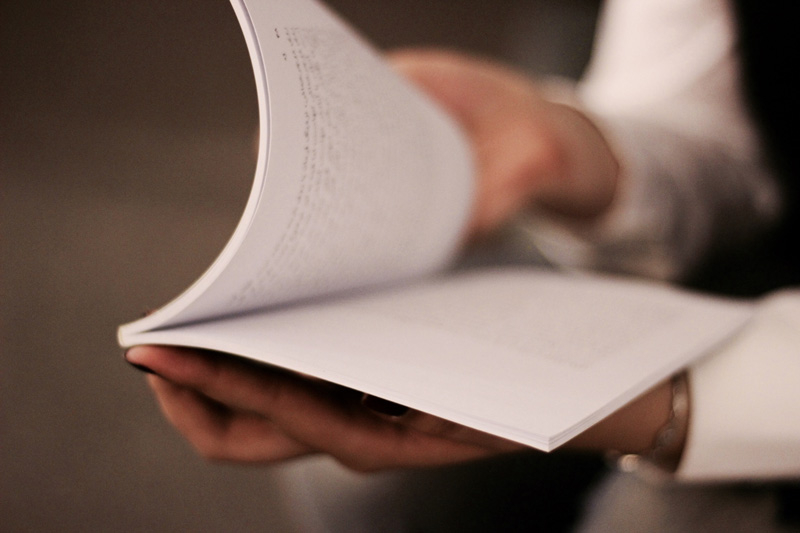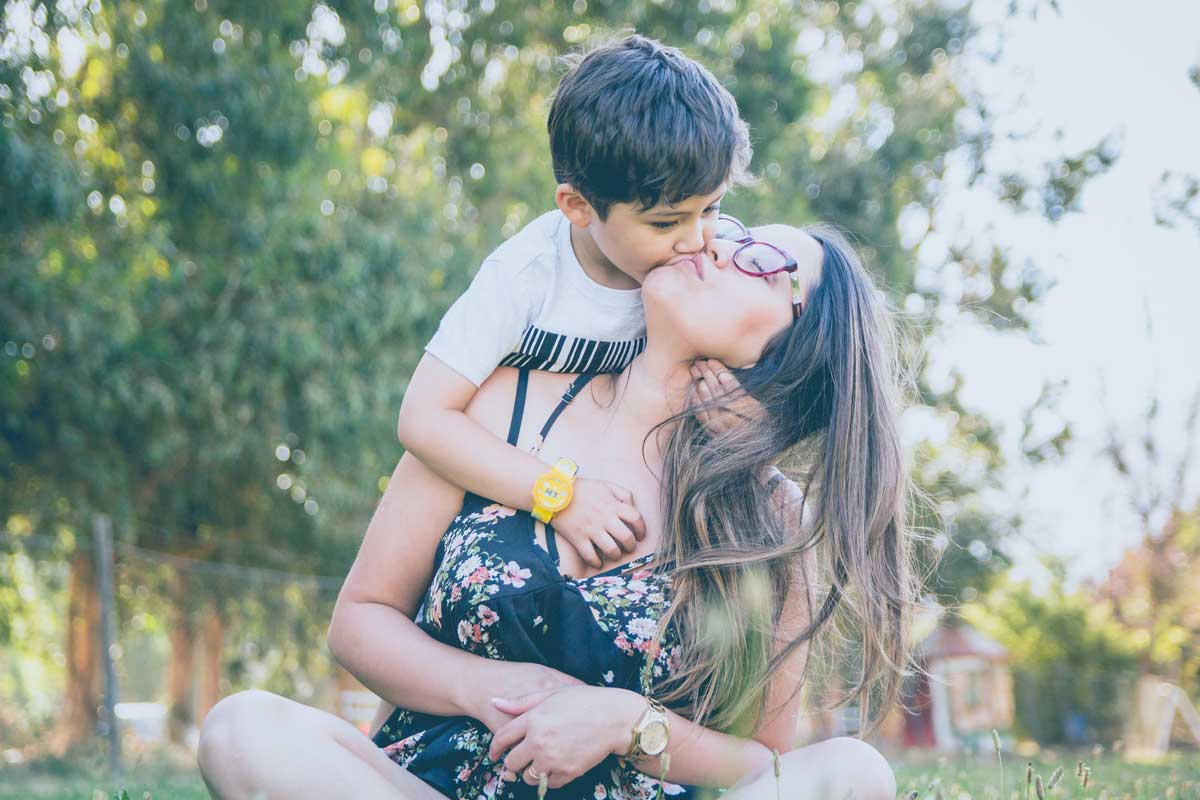Here’s How To Be Calm Amid The Storm
Learning to accept chaos as a part of family life and choosing your response to it is key to controlling your stress levels, explains expert Sarah Laurie
6 min read
 mum+ Article by Sarah Laurie
mum+ Article by Sarah Laurie
We have four children, the youngest of whom is now 15 years old. I recall the years of bustling mornings trying to get everyone out the door on time. Spilled milk, lost pieces of school uniform andd non-matching socks. Then, forgotten lunches, trails of belongings throughout our home, kitchen bench-tops forever strewn with the ‘clues’ of a busy family – I recall a sense of always trying to do better …

Stop trying to ‘do better’
I tried many things. I tried having Saturday mornings to myself, going to bed earlier, morning lists for everyone to follow, making lunches the night before. I tried ignoring the mess and then I tried getting everyone to be fastidious about the mess. I even thought about [and tried it] returning to work, thinking that the structure of a workday may offer me a sense of ease, compared to the busy life with my children. I think it was harder.
I guess it’s easy now, to say that I have the answer – our children are older, and those days of busy toddlers are behind us – but I’m pretty sure I do …

We can take control of our stress response
And the first thing I’ll explain is that it’s not about our life, in the first instance. We need to turn our attention from trying to take control of the myriad factors that create the pressure in our life, and instead take control of our body’s stress response. When we are stressed and under pressure, our first thoughts are often to desperately look to where we can change life. Instead we need to turn inward, and do what we can to put ourselves more at ease. It is this that helps us to cope better.

Stress can affect us all
Last year I partnered with a neuroscientist at The University of California, Berkeley. And one of the key things I learnt was that stress does not discriminate. Whether you are a farmer, an executive or a busy parent at home with toddlers, stress affects us the same way. This perhaps explains that universal issue, whereby a working parent comes home to a parent who works in the home, each desperate for a break – both believing that their ‘stress’ is worse. Our stressors are different, however we experience it the same.
It’s important that you engage these activities with the consistency I describe. What we do regularly becomes a pattern, and so the more regularly we engage them the more quickly we will feel more in control and more calm.

Pause. Pause now
Do you take breaks? So often we just keep going, always look for the next thing that needs doing; keep working until completion of our tasks without taking a break.
Every 90 minutes: Set an alert and notice the benefit of a 60 second pause.
Learning to breathe effectively really works
Your breath is one of the most fundamental methods to calm your brain and body and most of us breathe ineffectively.
Consistently: Teach yourself how to breathe deeply, into your stomach – not your chest. Practice breathing well, even when you are rushed or busy.
Creating rhythms can make your life easier
Create patterns in your day and week where you can – morning rituals, set meal times, activities with your children, date night, sleep and wake times.
Plan weekly: I recommend putting these things into your planner first – and then letting the rest of your life flow around them.

What are you grateful for?
New neural pathways are formed in your brain when you consistently focus on positive, uplifting, or special events, however big or small.
Nightly: Keep a journal by your bed [and a pen!] so you’re always prepared to enjoy this

You can re-wire your brain to be more positive
Worry depletes us emotionally. What are you worried about? Be still, ask yourself what you need to do about it? You’ll know …
Consistently: Sometimes your worry is valid, however, practice thinking about what a positive outcome could be instead, and your brain will begin to re-wire for optimism.

Remember what brings you joy, then go get it
Most of us are not sure what truly brings us joy. And even if we are, we probably don’t prioritise it in our schedule. Choose one for you. Engage in it regularly.
Consistently: This is generally the last thing we prioritise; yet it should be the first! Decide on yours – and enjoy some richness in your life.
As I look back on the years when my children were young, what seems apparent is how quickly they pass by. They can feel like an age as you live through them, however try as best you can to cherish them.

 Sarah Laurie is a best-selling author, a highly regarded lifestyle expert and her work is featured on TV, and in magazines and newspapers internationally. She aggregates best-in-class research from around the globe, turning it into
Sarah Laurie is a best-selling author, a highly regarded lifestyle expert and her work is featured on TV, and in magazines and newspapers internationally. She aggregates best-in-class research from around the globe, turning it into